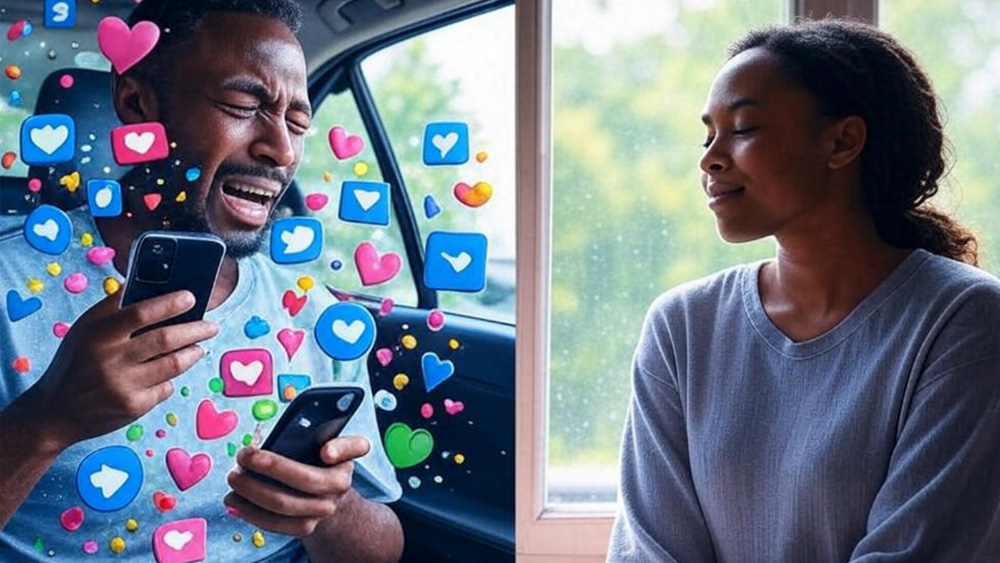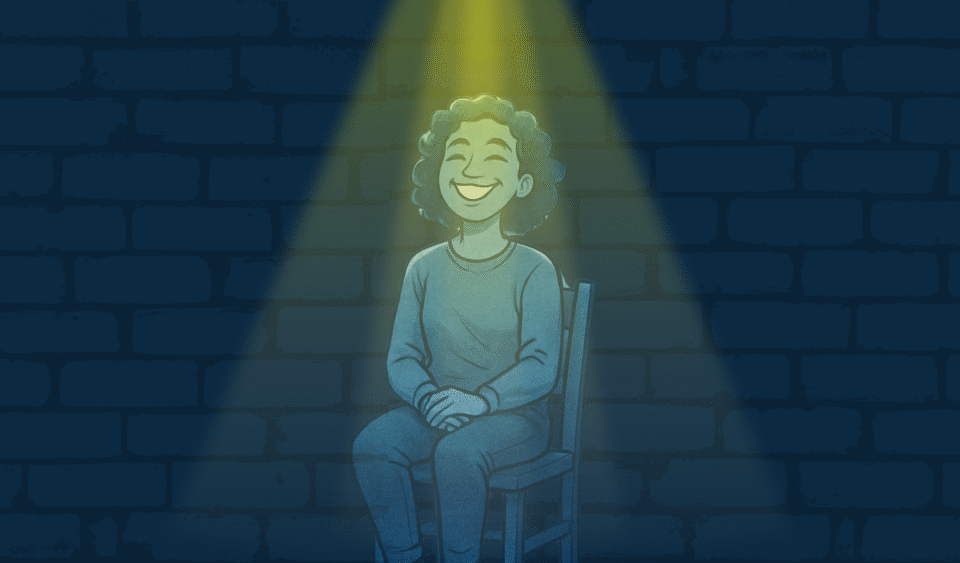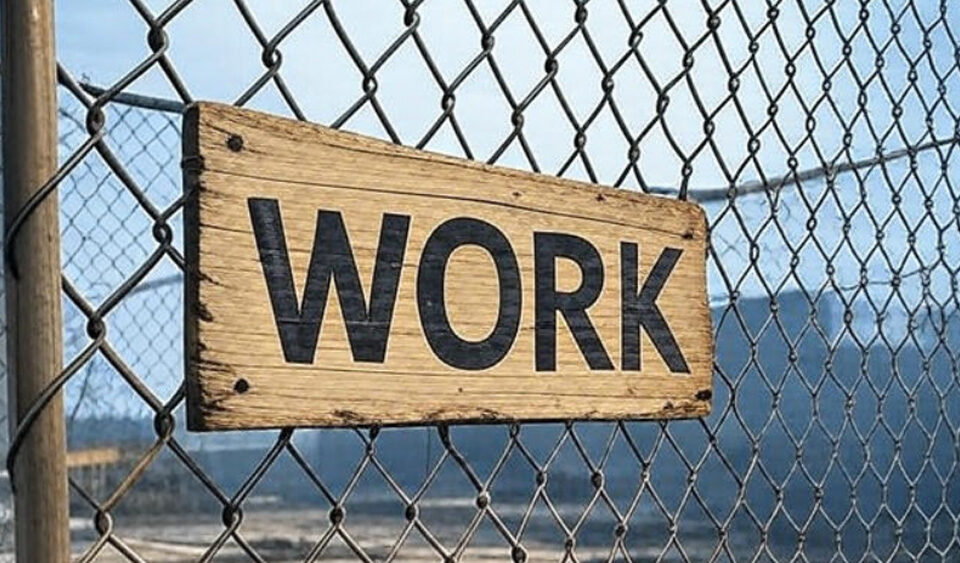Something strange has happened.
We’ve reached a point where stability feels almost shameful. Where not struggling visibly enough makes you somehow less authentic. Where being fundamentally okay has become the new taboo.
Scroll through any social feed and see it: people sobbing dramatically in their cars. Detailed breakdowns of their trauma. Raw footage of anxiety attacks. The constant performance of not being okay.
To be clear – normalizing mental health struggles was necessary. Essential, even. The movement to destigmatize depression, anxiety, trauma responses – all of it needed to happen. Still does.
But something has twisted along the way.
The Struggle Olympics
The algorithm knows what keeps you scrolling. Conflict. Drama. Pain. The more extreme, the better.
And humans, being the social creatures we are, adapt to what gets rewarded. Suddenly, ordinary human suffering isn’t enough. It must be spectacular. Performative. Captioned and filtered and hashtagged.
In this environment, stating that you’re basically okay feels almost transgressive. Admitting that while, yes, life has challenges, you’re generally handling them… that somehow reads as denial. As lack of depth. As privilege that should be acknowledged and apologized for.
When did being okay become something to hide?
The Badge of Suffering
For many, especially younger people, mental health struggles have become more than conditions to manage. They’ve become identities. Tribes. Ways of belonging.
It makes sense. In a world where traditional community has fractured, finding others who share your specific pain creates instant connection. Solidarity in struggle. A sense of not being alone.
But there’s a shadow side to this belonging. When your primary connection with others revolves around shared pain, getting better can feel like betrayal. Like abandoning your tribe. Like losing the only thing that made you interesting or worthy of care.
And so the struggling becomes a badge. A credential. Proof that you’ve suffered enough to have an opinion, to deserve space, to be heard.
The Quiet Strength
There is another way to exist that rarely gets airtime. A way of moving through the world that acknowledges its brutality without being defined by it.
It looks like working on yourself without documenting every step. It looks like handling your shit without needing validation. It looks like having bad days without them becoming your entire identity.
It’s not denial. It’s not toxic positivity. It’s not ignoring real issues.
It’s the radical acceptance that life contains suffering, and you’re developing the capacity to carry it without it crushing you. Without making it the centerpiece of who you are.
This isn’t about having an easy life. Some of the most stable people have endured unspeakable pain. But they’ve learned to integrate it rather than perform it.
The Permission Slip
So here it is. The permission no one seems to be giving:
It’s okay to be okay.
It’s okay to not have a diagnosis that explains your existence. It’s okay to work through your issues privately. It’s okay to feel generally stable most days. It’s okay to not share your darkest moments with strangers online. It’s okay to have grown beyond your trauma.
More than okay – it’s something to quietly honor in yourself. To recognize as strength, not as lack of depth or authenticity.
The Both/And Truth
This isn’t about denying real struggles. Mental health conditions are real, debilitating, and deserve treatment and compassion. Many people genuinely aren’t okay, and they need support, not silence.
But we need to make space for the both/and truth:
You can acknowledge mental health struggles AND refuse to make them your identity. You can support others in pain AND maintain boundaries around your own stability. You can have bad days AND not feel compelled to broadcast them. You can be empathetic AND protective of your own peace.
The Unspoken Burden
There’s another layer to this that rarely gets discussed. The constant performance of struggle creates impossible standards – not just for wellness, but for suffering itself.
For those genuinely battling severe depression or anxiety, seeing influencers with perfect lighting, makeup, and captions “normalizing” mental health can actually deepen isolation. Real depression often doesn’t look Instagram-ready. Real anxiety attacks rarely make for compelling content.
The performance creates a double bind: either your suffering isn’t severe enough to be valid, or it’s too severe to be palatable.
Meanwhile, those who are working through their issues, who are building resilience, who are finding their way to okay – they’re left wondering if they’re doing something wrong by not being broken enough.
The Quiet Revolution
There’s power in the decision to be okay without announcement. To work on yourself without audience. To grow past pain without monetizing it.
This isn’t about hiding struggle when it’s present. It’s about refusing to manufacture it when it’s not.
It’s about understanding that your value doesn’t decrease when your stability increases. That you don’t owe anyone your pain as proof of your depth. That healing doesn’t make you less interesting – it makes you more fully yourself.
The quiet revolution happens when you realize that being okay isn’t the absence of struggle. It’s the presence of capacity. The ability to hold both the beauty and brutality of life without being destroyed by either.
The Complete Picture
In mindset and performance coaching, the approach is always twofold. There’s the -5 to 0 work, where we address what needs fixing – the anxiety, overthinking, depression, addiction, insecurities, lack of self-esteem or confidence. This is necessary, valuable work.
Then there’s the 0 to +5 side, where we build on strengths, amplify what’s working, and create capacity beyond mere functioning. This isn’t luxury work – it’s equally essential.
Everyone needs both. Everyone has aspects that need repair and aspects that deserve enhancement. The magic happens when you’re honest enough to see yourself clearly, addressing wounds while also honoring strengths.
This is the work I do – speaking to both sides of this equation, helping people navigate both the valleys and the peaks of their internal landscape. If you’re curious about how it feels to acknowledge both your struggles and your stability – to work effectively on both sides of the equation without performative suffering – get in touch. There’s profound power in conversations that honor the complete human experience, not just the broken parts that get the most attention online.
The most profound transformations come not from endless excavation of pain, but from the balanced approach that says: “Yes, this needs healing AND I already possess much of what I need to thrive.”
The Path Forward
If you’re someone who’s worked hard to reach okay – to build the resilience, do the therapy, establish the boundaries, develop the practices that keep you grounded – honor that work. Don’t diminish it because it doesn’t fit the current narrative of what authenticity should look like.
If you’re genuinely struggling, seek real help from qualified professionals, not validation from social algorithms designed to keep you engaged but not necessarily better.
And if you’re somewhere in between – having good days and bad, mostly handling life with occasional overwhelm – know that this is the most human place to be. Not broken, not perfect. Just honestly navigating the complexity of being alive.
Working on mental health is vital. Seeking help is strength. But somewhere along the way, this truth got twisted into a performance, a competition, a badge of honor to wear rather than a journey to undertake.
Remember: it’s okay to be okay. It’s okay to have struggles. And it’s definitely okay to work on yourself without broadcasting every step of the process.
Because ultimately, being okay isn’t about denying darkness. It’s about building the strength to carry it. To integrate it. To keep moving forward not despite your wounds, but with them – transformed from barriers into bridges to deeper understanding.
That kind of okay isn’t boring. It isn’t shallow. It isn’t privilege.
It’s the most profound achievement possible in a broken world – the capacity to remain unbroken yourself.
Stay safe.
And don’t forget to be awesome.







